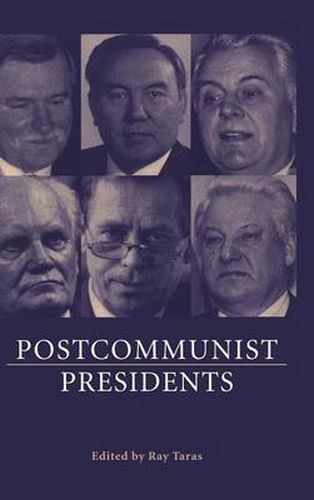Readings Newsletter
Become a Readings Member to make your shopping experience even easier.
Sign in or sign up for free!
You’re not far away from qualifying for FREE standard shipping within Australia
You’ve qualified for FREE standard shipping within Australia
The cart is loading…






The political systems that have replaced communist rule in East-Central Europe and Eurasia are closely associated with their presidents. The first democratically-elected presidents of these countries - men like Yeltsin, Havel and Waesa - have frequently been viewed as ‘founding fathers’ of their countries’ independence. But were they successful in creating strong presidential systems in these states? Has their unquestioned personal power and charisma been institutionalized in the presidencies? Will executive power in postcommunist states remain the same when the first incumbents of the office are gone? This book offers the first comparative analysis of the role of presidents in postcommunist states. Comprising studies of Russia, Ukraine, and Kazakstan among former Soviet republics, and Poland, the Czech Republic, and Hungary among Central European states, this book will be required reading for readers interested in how political leaders affect the fate of democracy in the former communist world.
$9.00 standard shipping within Australia
FREE standard shipping within Australia for orders over $100.00
Express & International shipping calculated at checkout
The political systems that have replaced communist rule in East-Central Europe and Eurasia are closely associated with their presidents. The first democratically-elected presidents of these countries - men like Yeltsin, Havel and Waesa - have frequently been viewed as ‘founding fathers’ of their countries’ independence. But were they successful in creating strong presidential systems in these states? Has their unquestioned personal power and charisma been institutionalized in the presidencies? Will executive power in postcommunist states remain the same when the first incumbents of the office are gone? This book offers the first comparative analysis of the role of presidents in postcommunist states. Comprising studies of Russia, Ukraine, and Kazakstan among former Soviet republics, and Poland, the Czech Republic, and Hungary among Central European states, this book will be required reading for readers interested in how political leaders affect the fate of democracy in the former communist world.